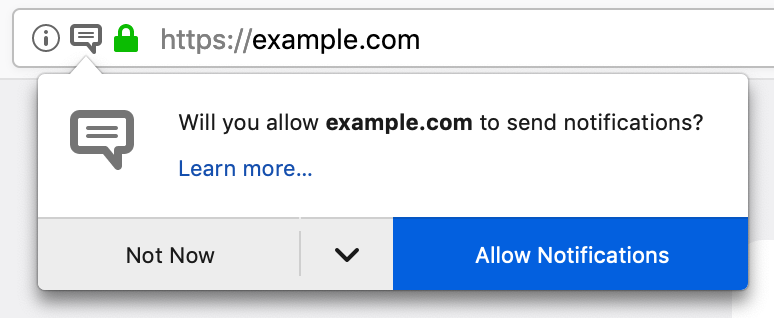Firefox is killing maybe its most annoying feature in 2020

Mozilla, the maker of the popular Firefox web browser, has revealed it will begin blocking notification pop-ups by default in an update scheduled for early next year.
The notifications, often sent by websites asking users whether they want to be alerted to new posts or messages once they’ve left the site, have become an unpopular feature among Firefox users, with the vast majority dismissing pops-up or blocking the websites from the permission sought.
The alerts, which drop down from a speech bubble in the URL bar, have already been blocked by default within the Firefox Nightly build, which enables users to test pre-release features. In Firefox 72, due to arrive next January, the blackout is coming to the main consumer release.
Related: Best VPN 2019
Instead of showing the notification on screen, once the update is installed, the message bubble will wiggle to alert users to its presence. Only clicking on the speech bubble will reveal the notification.

The feature was first integrated into Firefox back in 2013 and, in theory, was designed to give users updates on messages, and new content they’re interested in. However, it soon became a little, shall we say, spammy.
Before ditching the notifications within Firefox Nightly, Mozilla conducted a study, which revealed 97% of all notifications were dismissed by users (via CNET).
In a blog post, it wrote: “…with about 18 million prompts shown on Firefox Beta in the month from Dec 25 2018 to Jan 24 2019. Not even 3% of these prompts got accepted by users. Most prompts are dismissed, while almost 19% of prompts caused users to leave the site immediately after being confronted with them. This is in stark contrast to the camera/microphone prompt, which has an acceptance rate of about 85%!”
Mozilla concluded that websites were showing the prompt too early, without giving users enough time to decide whether they want to hear from them again. The foundation also believes the notifications aren’t usefully conveying how the user experience could be enhanced by the notifications.

So they’re going from the main build too. You’ll still be able to use them, if they do truly prove useful, but you’re going to have to manually enable them.


